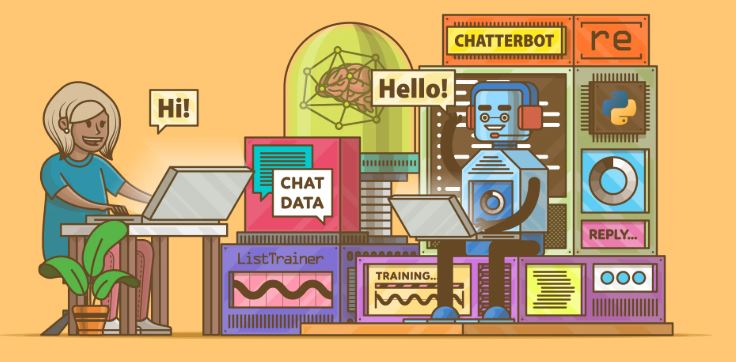Machine learning (ML) is one of the most exciting fields in technology today, and it is rapidly transforming industries ranging from healthcare and finance to e-commerce and entertainment. However, for beginners, the vast amount of theory, algorithms, and tools can feel overwhelming. The best way to truly understand machine learning is to learn by doing—which means building hands-on projects.
In this article, we will explore machine learning projects for beginners, explain why projects are essential, provide examples with guidance, and share practical tips to help you gain confidence in applying ML concepts.
Why Are Machine Learning Projects Important for Beginners?
Gaining Practical Experience
While theory provides the foundation, practical projects give learners the opportunity to apply concepts like regression, classification, clustering, and natural language processing (NLP).
Strengthening Your Resume
Employers in the field of data science and AI value candidates who can demonstrate real-world applications of machine learning. Projects can serve as portfolio pieces on GitHub or LinkedIn.
Building Confidence
By solving real problems, beginners gain confidence in coding, debugging, and interpreting results, making them better prepared for advanced ML challenges.
Key Skills to Develop Through Beginner ML Projects
Understanding Data
-
Cleaning datasets
-
Handling missing values
-
Exploratory data analysis (EDA)
Applying Algorithms
-
Regression for prediction
-
Classification for decision-making
-
Clustering for grouping similar data
Using Tools and Libraries
-
Python as the main programming language
-
Libraries like NumPy, Pandas, Scikit-learn, TensorFlow, and Keras
Machine Learning Projects for Beginners
1. House Price Prediction
Description
A regression project where you predict house prices based on factors like size, location, and number of rooms.
Skills Learned
-
Linear regression
-
Data preprocessing
-
Feature engineering
Tools
Python, Pandas, Scikit-learn

2. Movie Recommendation System
Description
A system that suggests movies based on user preferences.
Skills Learned
-
Collaborative filtering
-
Content-based filtering
-
Recommendation algorithms
Tools
Python, Scikit-learn, Surprise library
3. Email Spam Detection
Description
A classification project that identifies whether an email is spam or not.
Skills Learned
-
Text preprocessing
-
Natural Language Processing (NLP) basics
-
Naive Bayes algorithm
Tools
Python, NLTK, Scikit-learn

4. Stock Price Prediction
Description
Using historical data to predict stock prices or trends.
Skills Learned
-
Time-series forecasting
-
Feature extraction
-
Model evaluation
Tools
Python, Pandas, Scikit-learn, LSTM models with TensorFlow/Keras
5. Handwritten Digit Recognition (MNIST Dataset)
Description
A computer vision project that classifies handwritten digits (0–9).
Skills Learned
-
Neural networks
-
Image classification
-
Convolutional Neural Networks (CNNs)
Tools
Python, TensorFlow, Keras
6. Customer Segmentation
Description
Grouping customers based on purchasing habits using clustering.
Skills Learned
-
Unsupervised learning
-
K-means clustering
-
Data visualization
Tools
Python, Scikit-learn, Matplotlib
7. Sentiment Analysis of Tweets
Description
Analyzing the sentiment (positive, negative, neutral) of tweets about a brand or topic.
Skills Learned
-
Text mining
-
NLP preprocessing (tokenization, stopword removal)
-
Logistic regression or deep learning models
Tools
Python, NLTK, TensorFlow/Keras
8. Fraud Detection System
Description
Detecting fraudulent transactions in financial datasets.
Skills Learned
-
Anomaly detection
-
Classification with imbalanced datasets
-
Precision, recall, and F1-score evaluation
Tools
Python, Scikit-learn
9. Sales Forecasting
Description
Predicting future sales based on historical data and trends.
Skills Learned
-
Time-series analysis
-
Regression modeling
-
Model evaluation metrics
Tools
Python, Scikit-learn, Prophet
10. Iris Flower Classification
Description
The classic beginner project that classifies iris flowers into species based on petal and sepal measurements.
Skills Learned
-
Data visualization
-
Classification algorithms
-
Model accuracy evaluation
Tools
Python, Scikit-learn
Step-by-Step Approach for Beginners
Step 1: Choose a Dataset
-
Use open datasets from Kaggle, UCI Machine Learning Repository, or GitHub.
Step 2: Clean and Explore the Data
-
Remove duplicates and handle missing values.
-
Visualize data for patterns and insights.
Step 3: Select a Model
-
Start with simple models like linear regression or decision trees.
-
Experiment with more complex models as you progress.
Step 4: Train and Test the Model
-
Split data into training and testing sets.
-
Use cross-validation for better evaluation.
Step 5: Evaluate and Improve
-
Measure performance with metrics like accuracy, precision, recall, and RMSE.
-
Optimize models using hyperparameter tuning.
Step 6: Deploy and Share
-
Share your project on GitHub.
-
Write a blog post explaining your solution.
-
Use deployment tools like Streamlit or Flask.
Common Mistakes Beginners Should Avoid
Overfitting
Building models that perform well on training data but poorly on test data.
Ignoring Data Preprocessing
Jumping directly into modeling without cleaning and preparing the dataset.
Using Complex Models Too Early
Starting with deep learning before mastering simpler algorithms.
Tips to Succeed with ML Projects
-
Start small and gradually move to complex datasets.
-
Join online communities like Kaggle or Reddit ML forums.
-
Practice coding daily in Python.
-
Document your projects in GitHub with clear explanations.
Conclusion
Building machine learning projects for beginners is the best way to transition from theory to practice. From predicting house prices to analyzing tweets, these projects offer a hands-on learning experience that will strengthen your understanding and prepare you for real-world challenges. Remember to start small, focus on mastering the basics, and gradually build a portfolio that showcases your skills.
Machine learning is a journey, and your first projects are the stepping stones toward becoming an expert.





